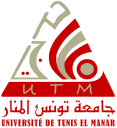Discover global hiring strategies from leading recruitment platforms
Learn more
Speed up your global expansion! Expand smartly in 150+ countries with the #1 rated EOR globally.
Explore Multiplier EOR

Your guide to the employment landscape, working customs and local labor laws in Tunisia.
Capital
Tunis
Currency
Tunisian Dinar
Languages
Arabic, English
GDP per Capita
$3,761.67
Employer Tax
3% - 20.07%
Payroll Frequency
Monthly
Tunisia is the northernmost country in Africa with a population of 11,935,764 in 2021. In the same year, the country had a GDP of USD 46.84 billion and recorded a growth rate of 3.3%. Tunisia ranked 78 on the World Bank’s Ease of Doing Business Index in 2019 and had a 55.8 score on the Economic Freedom Index in 2020.
Major economic hubs:
Tunis, Kairouan, Sousse
Skills in demand:





1,694,000
Alshihab Human Resources Solutions, Staffing Tunisia, FMC Group
Top Local Job Boards:
Top Local Job Boards
Number of LinkedIn users:
Number of LinkedIn users
Top Recruitment Agencies:
Some common jobs with average monthly salary in Tunisia are mentioned below;
| Job Title | Average Monthly Salary (in TND) | Average Monthly Salary (in USD) |
| Financial Manager | 7,840 TND | 2,552.51 USD |
| General Manager | 6,790 TND | 2210.65 USD |
| Business Development Manager | 6,490 TND | 2,112.98 USD |
| Financial Analyst | 5,150 TND | 1,676.71 USD |
| Business Analyst | 4,830 TND | 1,572.53 USD |
| Project Manager | 4,370 TND | 1,422.76 USD |
The Labour Code of Tunisia and Decree No. 87-1097 regulate the relationship between employers and employees. The Code also resolves disputes between the two parties and provides guidelines for overtime pay and penalties. The sections below cover the major aspects of the Code, which all employers and employees must know.
The Labour Code of Tunisia recognizes both written and oral employment contracts in English or Arabic.
The probation period in Tunisia is a maximum of 6 months for general employees, 9 months for first-line supervisors, and 1 year for executives.
| Date | Name | Type |
| 1 Jan | New Year | Public Holiday |
| 20 Mar | Independence Day | Public Holiday |
| 9 Apr | Martyrs’ Day | Public Holiday |
| 10 Apr | Eid al-Fitr (Tentative Date) | Public Holiday |
| 11 Apr | Eid al-Fitr Holiday (Tentative Date) | Public Holiday |
| 12 Apr | Eid al-Fitr Holiday (Tentative Date) | Public Holiday |
| 1 May | Labour Day | Public Holiday |
| 16 Jun | Eid al-Adha (Tentative Date) | Public Holiday |
| 17 Jun | Eid al-Adha Holiday (Tentative Date) | Public Holiday |
| 7 Jul | Muharram (Tentative Date) | Public Holiday |
| 25 Jul | Republic Day | Public Holiday |
| 13 Aug | Women’s Day | Public Holiday |
| 15 Sep | The Prophet’s Birthday (Tentative Date) | Public Holiday |
| 15 Oct | Evacuation Day | Public Holiday |
| 17 Dec | Revolution and Youth Day | Public Holiday |
| Type of Leave | Time Period | Mandatory |
| Annual leaves | 21 days | Yes |
| Sick leaves | Sickness benefit for up to 180 days per year, after a five-day waiting period | Yes |
| Maternity leaves | 30 days | Yes |
Leave Compliance
Payroll cycle
Tunisia follows a monthly payroll cycle.
Minimum wage
The minimum wage in Tunisia is as per the table below:
Read more
Overtime pay
Both 40-hour and 48-hour workweeks are legal in Tunisia, as per the Decree. In case an employee is required to decide additional hours to work, they must be compensated overtime pay according to the following:
Read more
| Contribution | Tax rate |
| Social security |
|
| Work Insurance | 0.5% |
| Social Lodging Tax | 1% |
| Vocational Training Tax | 2% (1% for manufacturing companies) |
| Contribution | Tax rate |
| Social security | 9.18% |
The Finance Law 2018 introduced a Social Solidarity Contribution (CSS) as a supplement to the income tax, capped at 1% and payable only by employees. However, the Finance Law 2020 establishes that individuals who earn only salaries, pensions and life annuities with net income less than TND 5,000 are exempted from CSS.
| Income slab | Tax rate excluding CSS | Tax rate including CSS |
| 0 – 5000 | 0% |
|
| 5,001 – 20,000 | 26% | 27% |
| 20,001 – 30,000 | 28% | 29% |
| 30,001 – 50,000 | 32% | 33% |
| More than 50,000 | 35% | 36% |
VAT
The standard rate of Value-Added Tax in Tunisia is 19%. There are reduced rates of 7% and 13% applicable to specifically designated operations.
Tunisia does not mandate employers to pay 13th-month pay.
Employment contracts can be terminated on grounds of expiry of contract, completion of project, misconduct, or mutual agreement. Fixed-term contracts in Ethiopia are terminated when they expire. However, the party taking the initiative must give a written notice before termination.
As per the Labour Code of Tunisia, all employees on fixed-term contracts must be given a notice of at least 1 month before termination. The notice period can extend based on the collective agreement.
All Tunisian employees on an indefinite contract must be given severance pay upon termination. However, this pay is not entitled to employees terminated due to gross misconduct.
The rate of severance pay is one day’s pay for each month of service, capped at 3 months’ pay. The pay can vary based on the collective agreement between the two parties.
Tunisian work visa is given only by a consulate or an embassy. The applicant must visit the premises of the consulate/embassy and submit the required documents. eVisa is not yet available; however, the local government is setting up the infrastructure for fast and digital visa processing. Foreign citizens must also apply for a temporary or permanent residence permit after arriving in Tunisia.
Read more
Expand globally and hire talent in 150+ countries without having to set up an entity. Use Multiplier's Employer of Record to manage the complete employee experience while having the flexibility to enter new markets.

Overtime Pay
Minimum Wage
| Employment sector | Per hour | Per day | Per month |
| Agriculture | – | TND 17.660 | – |
| Non-agriculture in 40-hour system | TND 2.250 | – | TND 389.500 |
| Non-agriculture in 48-hour system | TND 2.200 | – | TND 457.220 |
Overtime Pay
Both 40-hour and 48-hour workweeks are legal in Tunisia, as per the Decree. In case an employee is required to decide additional hours to work, they must be compensated overtime pay according to the following:
Visa and Immigration
By use case
By team
By company size